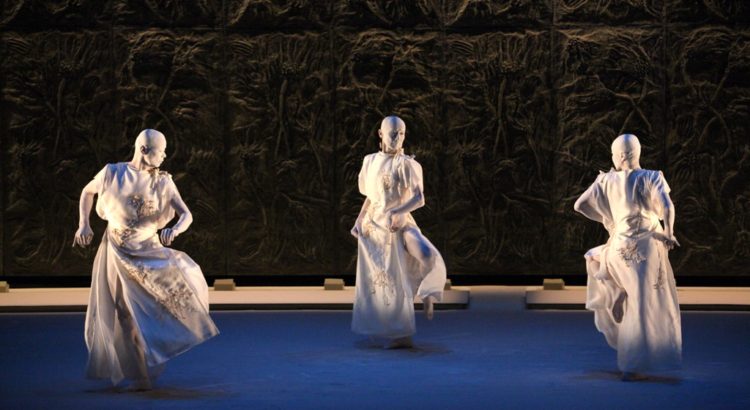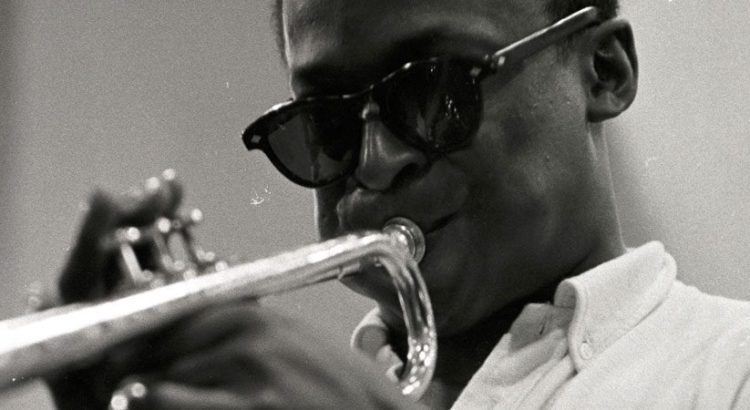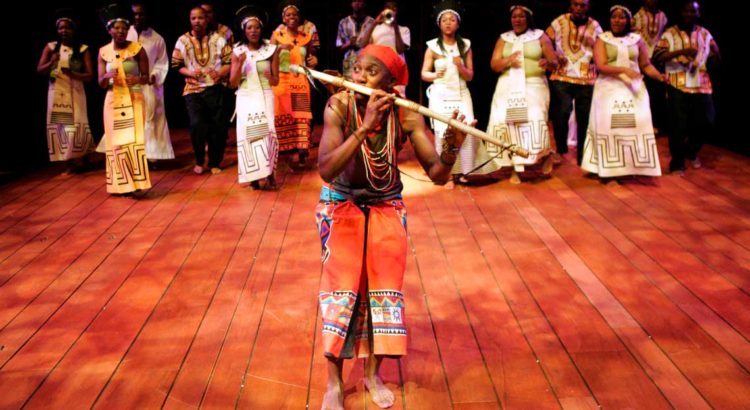Sankai Juku’s Meguri: Teeming Sea, Tranquil Land is a unique show to say the least. If you’ve never heard of the Japanese dance form of butoh, this is a good introduction.
Butoh began in post-WWII Japan as a response to both traditional and Westernized forms of dance that were popular at the time. The dancers typically perform in all white body makeup and the style is characterized by controlled, slow gestures as well as grotesque and somewhat disturbing movements.
All of this and more is present in Sankai Juku’s performance. Directed by Ushio Amagatsu, Meguri consists of seven sections, delineated by color scheme and number of dancers. As the name of the show implies, imagery of the sea plays against imagery of the land with the use of blue, aqua, and warm amber lighting by technician Genta Iwamura.
The dancers, painted white from head to toe and wearing bald caps, are clad in light, off-white simple garments, with the color of the linings usually changing to match the lighting of a certain section. This simple realization of costume by Masayo Iizuka does well at avoiding being overly theatrical while still fitting into the world of Meguri.
Although Amagatsu does not present any concrete narrative within Meguri, these motifs create the overall impression (at least for me) of the primordial Earth and life’s emergence from the sea onto dry land. The beautiful backdrop of sea lily fossils, credited to Roshi, contribute to this sense of history.
As I said, Amagatsu’s choreography does not tell a story, but rather sets a mood. The music and sound design by Takashi Kako, YAS-KAZ, and Yoichiro Yoshikawa is my favorite element of the show. With a healthy mix of orchestral strings and winds as well as some layers of synth, the music provides a cinematic sense to the choreography. Without it the performance would seem much less interesting and important.
Overall I’m glad the University Musical Society brought this world-class performance to our campus. While not for everyone, Meguri: Teeming Sea, Tranquil Land transports and transfixes the viewer, and there’s something to be said for watching something that is so magically disturbing.






